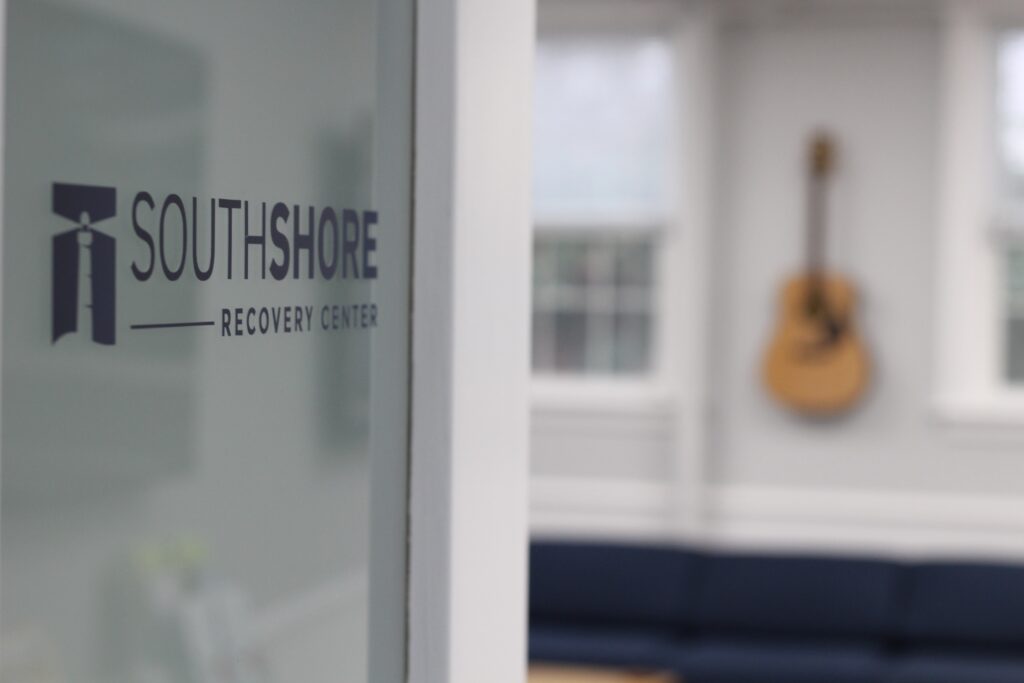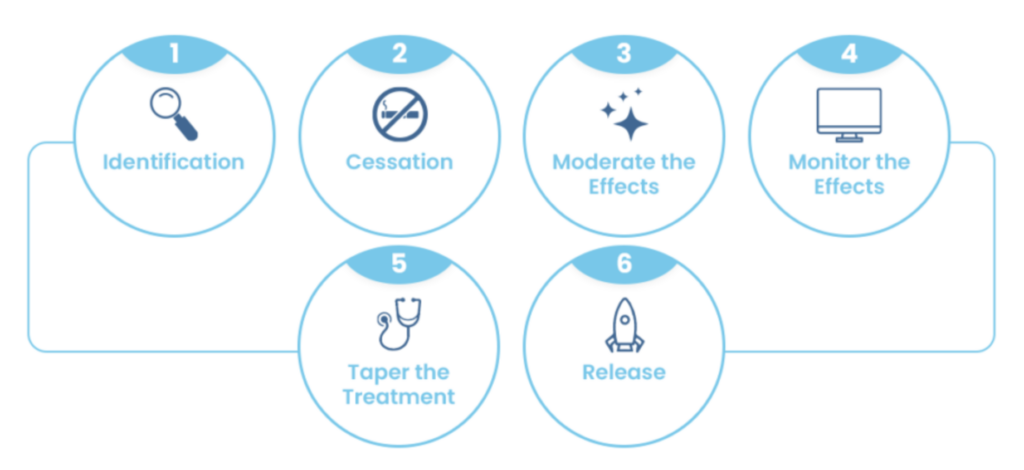-
Modalities
-
-
Looking for the best detox near me? If you need immediate help, local detox centers can provide the services you need to start your recovery journey.
This article will guide you through the top detox programs in your area, what they offer, and how to choose the right one for your needs.

The state of Massachusetts boasts an array of detoxification centers that are equipped to address the unique challenges faced by individuals struggling with addiction. These establishments not only focus on substance abuse, but also extend their services to those who have dual diagnoses, offering integrated treatment plans for managing co-occurring disorders. A number of these centers deliver a continuum of care that encompasses both initial detox and subsequent inpatient rehabilitation programs, promoting a smooth progression toward lasting recovery.
To identify the most suitable facility for your detox requirements, it’s beneficial to consider the various local options available. Among them are premier detox centers in Massachusetts recognized for providing outstanding levels of care and assistance.
Located in Plymouth, MA, South Shore Recovery Center is recognized as a leading facility for addiction treatment. The center provides personalized behavioral therapy and medically supervised detoxification specifically designed for individuals with co-occurring disorders.
South Shore Recovery Center delivers an all-encompassing approach to substance abuse treatment that aids patients in maintaining long-term recovery from their addictions.
Choosing an appropriate detox center is essential for a successful path to recovery. In Massachusetts, there’s a wide range of detox programs designed specifically for different types of substance use disorders, catering to the distinct requirements of each individual. When deciding on a detox facility, it’s important to evaluate aspects such as its accreditation status, methods of treatment provided, and the qualifications held by its staff.
The presence of accreditation from reputable organizations signifies that a detox facility adheres to prescribed standards and benchmarks indicative of quality service delivery and efficacy in treatment. Accredited centers tend to attract more skilled professionals, which can significantly improve the level of care patients receive.
It’s also vital to examine the various treatment approaches employed by the facility. Techniques like medical detox alongside behavioral therapy are instrumental in mitigating withdrawal symptoms while fostering progress towards full recovery from substance dependence.
Achieving accreditation represents a hallmark of excellence within the healthcare sector, particularly for detox centers. Facilities that have earned recognition from CARF or The Joint Commission have passed thorough evaluations to uphold superior standards of care, ensuring patients receive top-quality treatment.
Accreditation may contribute to reduced insurance premiums, thereby enhancing the affordability and accessibility of detox services.
Grasping the various treatment strategies employed by a detox center is crucial. The distinct advantages of medical detox, behavioral therapy, and holistic modalities are significant to consider when choosing an appropriate facility. Inquiring about both treatment methodologies and aftercare provisions is beneficial for making an informed decision.
Employing resources such as ATLAS from Shatterproof.org can aid in evaluating your specific needs for treatment and assist you in finding facilities that match those requirements.
Staff credentials and experience are crucial when choosing a detox facility. Board-certified and licensed clinicians offer professional addiction treatment. Inpatient options provide a structured environment for managing withdrawal symptoms, aiding recovery.
Visiting facilities in person lets potential clients assess the environment and services, ensuring they choose a facility that meets their needs.

Grasping the intricacies of the detox process and its time frame is key to forming attainable expectations. Detoxification encompasses a preliminary assessment, management of withdrawal symptoms, and a smooth handover to Treatment avenues. The efficiency of various detox approaches differs, necessitating an appraisal among alternatives such as medical detox, behavioral therapy, and comprehensive natural treatments. Speaking, the duration for detox can span from several days up to a number of weeks based on personal circumstances.
Typically spanning 5 to 14 days in length, the average duration of a detox program is shaped by factors like an individual’s history with substance use and their unique needs regarding treatment. This regimen aims at securely managing withdrawal symptoms while equipping individuals for sustained therapeutic interventions and eventual recovery.
An initial assessment customizes the detox treatment for each person by conducting an in-depth examination of their history with substance use, mental health condition, and any concurrent disorders they may have to establish the most suitable treatment strategy.
Overseeing withdrawal symptoms is a critical aspect of the detoxification process. Depending on the specific substance involved, these symptoms can range from nausea and anxiety to seizures. In Massachusetts, medically supervised detox programs provide round-the-clock nursing care to promote safe withdrawal.
In conjunction with medication-assisted treatment (MAT), behavioral therapy is frequently employed both to alleviate symptoms and aid in recovery. Prompt admission into a detox program—possible on the same day—can help mitigate the risk of overdose after stopping opioid use. Receiving drug addiction treatment is an essential component in navigating this journey successfully.
Moving from detoxification to ongoing care is essential for sustaining long-term sobriety. Following the detox phase, individuals are advised to seek Treatment to manage any persistent withdrawal symptoms and tackle root causes.
At this stage, patients usually choose either an inpatient or outpatient rehabilitation program that provides necessary support and tools required for lasting recovery.
In Massachusetts, there are a range of specialized detox programs available for various substance use disorders. These include acute treatment services, outpatient treatments, and supportive housing options. Selecting a program tailored to your specific needs can greatly improve the success rate of the detox process.
The following are some examples of specialized detoxification programs that can be found in Massachusetts:
Programs for alcohol detox are designed to safely handle severe and possibly deadly withdrawal symptoms. Facilities with medical supervision frequently employ medication-assisted treatment specific to drug and alcohol detox in order to mitigate intense withdrawal symptoms while maintaining patient safety.
Detox on an outpatient basis is appropriate for those who have stable living conditions and robust support networks.
In Massachusetts, detoxification services for opioid addiction frequently employ medication-assisted treatments (MAT) to mitigate withdrawal symptoms and cravings. These measures assist individuals in coping with physical dependency and diminish the chances of relapsing.
Detoxification regimens designed for prescription drug abuse necessitate tailored approaches due to the distinctive difficulties associated with dependence on these substances and their withdrawal process.
The process of detoxification from prescription drugs comes with its own set of difficulties, frequently requiring particular medications designed to help handle withdrawal symptoms. Drugs such as benzodiazepines are regularly used in treatment to facilitate a safer and more tolerable experience during this phase.
Finding quality care involves thorough research and vigilance. Ask questions, tour facilities, and review available treatment services to ensure they meet your needs. Grants, scholarships, sliding fee scales, and financing plans can make treatment more accessible.
To assist you further, here are some specific tips:
Browse platforms such as Google and Yelp to peruse reviews from previous patients, allowing you to obtain a comprehensive perspective on their encounters. Visit the detox center’s official website and look through testimonials to assess the level of patient satisfaction.
Exercise vigilance when a facility is not open about its treatment programs or employs forceful marketing strategies. These signs could indicate that the quality of care provided might be substandard.
When evaluating detox centers, be aware of extreme negative reviews, which can sometimes be exaggerated. A few bad reviews are common and may stem from individuals taken against their will, so consider the context.
Warning signs of substandard facilities include lack of accreditation and unclear treatment plans.

Deciding whether to opt for inpatient or outpatient detoxification hinges on the intensity of the addiction and individual life conditions. Inpatient facilities provide round-the-clock medical care and emotional assistance within a controlled setting, which is essential for those grappling with severe addictive behaviors.
Conversely, outpatient programs permit people to uphold their everyday duties while undergoing treatment, making them appropriate for milder forms of addiction.
Detox on an outpatient basis may be effective for individuals with milder substance addiction, provided they have a supportive and stable living situation. It permits them to maintain their everyday activities while getting treatment, which offers both adaptability and ease.
The structured setting provided by inpatient treatment is advantageous for individuals, as it allows them to concentrate exclusively on their recovery journey. With around-the-clock medical oversight, patients are safely monitored throughout detox and any simultaneous mental health conditions are managed accordingly.
Employing this thorough method typically leads to greater outcomes in terms of success and diminishes the chances of a relapse occurring.
Understanding insurance and payment options is crucial for accessing detox treatment without financial strain. Many detox centers accept private insurance, Medicaid, and Medicare, which can cover all or part of the treatment costs.
Some facilities also offer financing plans, allowing patients to manage their expenses over time.
It’s essential to confirm your insurance coverage prior to starting a detox program. To assist with this, either utilize confidential forms or reach out to admissions navigators who can provide advice on the various treatment options and programs available when you’re being admitted. Numerous addiction treatment centers work in partnership with Medicare or TRICARE, providing patients with affordable alternatives.
Knowing what your insurance covers is beneficial for effectively controlling any expenses that you will need to pay out of pocket.
Payment options such as sliding scale fees, financing plans, and programs funded by the government can greatly alleviate the cost associated with detox treatment, thereby making high-quality care more attainable.
Detox programs offering same-day admission ensure prompt assistance for critical detoxification requirements, facilitating rapid entry to treatment and support without any postponement.
To utilize these services, reach out directly to a detox center and confirm their capacity for immediate availability.
At American Addiction Centers, individuals in dire need can access detox services with urgent 24-hour admission. They offer same-day admission to swiftly assist with addiction treatment and alleviate withdrawal symptoms.
To initiate a detox program immediately, it’s advisable to reach out directly to detox centers. They will conduct an initial assessment to ascertain the necessary care level. Ensuring your insurance coverage is confirmed in advance can expedite the admissions procedure and elucidate which services are included under your policy.
To effectively detox your system, focus on maintaining a balanced lifestyle by limiting alcohol, drinking more water, getting adequate sleep, and reducing sugar and processed foods.
Incorporate antioxidant-rich foods and stay active to support your body’s natural detoxification processes.
Detoxing can vary in cost significantly, with outpatient programs typically being less expensive than inpatient ones, which average around $525 per day.
It’s essential to consider the type of detox program that best suits your needs for effective recovery support.
When choosing a detox facility, prioritize accreditation, the variety of treatment methods offered, and the qualifications of the staff.
These factors ensure a safe and effective recovery environment.
Structured inpatient detox programs offer round-the-clock medical oversight and a well-organized setting, considerably improving the likelihood of successful recovery. Such an all-encompassing support network is essential for those experiencing withdrawal symptoms.
To verify your insurance coverage for detox treatment, contact your insurance provider directly or use their confidential form.
This will ensure you receive accurate information regarding your benefits.
As the Medical Director at New England Psychiatric Consultants, I’m dedicated to elevating mental health care through compassionate, evidence-based practices. With a robust clinical background and leadership experience, I work closely with multidisciplinary teams to design and deliver comprehensive outpatient and consultative psychiatric services. I’m passionate about championing innovative treatment approaches and optimizing patient journeys from assessment through recovery.
Key Expertise & Achievements
Leadership in clinical operations, quality assurance, and regulatory compliance
Implementation of integrated care models that enhance patient access and outcomes
Expertise across mood disorders, anxiety, and serious mental illness
Advanced training in psychopharmacology, psychotherapy, and collaborative care strategies
Professional Approach
Driven by empathy, teamwork, and data-informed decisions, I strive to foster environments where clinicians and patients alike feel supported. Whether guiding team development, streamlining care pathways, or navigating complex cases, I take a thoughtful, solution-oriented stance.